Small stores are forced to pay more for their energy than their supermarket competitors, which makes getting a good deal and investing in energy-efficient equipment crucial. C-Store finds out how small stores are finding savings
You can spend big on chiller doors, LED lighting and energy-efficient equipment to help manage energy costs, but when it comes to buying energy in the first place small retailers are faced with the fact they are having to pay over the odds.
According to a report by energy regulator Ofgem, prices for small business customers remain “significantly higher than those for larger customers”. Its State of The Energy Market 2017 report released at the end of last year reveals that non-domestic electricity prices are about 50% higher for small firms than for large ones.
Larger businesses have a distinct advantage in being able to negotiate better deals than smaller businesses, given their higher bargaining power, the report says.
Shaun Underwood, director of commercial sales at Utilita Business Energy, says he has noticed small retailers often get a rough deal when it comes to energy. “We often see small businesses struggling with energy costs, and commonly this is due to factors outside of their control. Research we conducted last year highlighted the degree of unfair treatment, with almost half of respondents saying they were asked to provide a large upfront deposit or were given higher tariffs from some energy suppliers due to perceived poor credit ratings,” says Underwood.
The obvious solution is to shop around among energy providers, yet Underwood adds: “When many small businesses are time-poor, finding and securing a fair energy deal can be an overwhelming challenge.”
It might go some way to explaining another State of The Energy Market report finding: that the number of small businesses switching suppliers has declined over the past year, with 21% of businesses switching in 2016 compared with 25% in 2015.
More than a quarter (27%) of small businesses said that it was too complex or time-consuming to find a new tariff or supplier. However, those renegotiating tariffs with their existing suppliers increased from 30% to 39% over the last year.
Sunder Sandher, owner of One Stop Leamington Spa in Warwickshire, believes there is always a better deal to be had when it comes to buying energy. “You only realise that utility companies are competitive when you look into the options, and there’s always a much better deal to be had,” Sunder says.
He adds: “Despite utility companies putting their prices up every year my energy costs have actually decreased. As well as making the store more energy efficient, every year I get a new contract for my utility bills and ensure I get the cheapest deal.”
Sunder uses the free USwitch Business service to find the best deal for his store. He says it makes the job of finding the cheapest energy deal a lot easier than contacting many different firms directly. “I was with British Gas last year and USwitch managed to get me back on with British Gas for a couple of hundred pounds less than the price I was quoted,” Sunder adds.
Russell Jenkins, co-owner of Milverton Stores in Taunton, Somerset, uses a broker that has a relationship with his symbol group, Nisa. “That way you know they are trustworthy,” he says. “We get calls all the time from people who want to sell you a contract, but it comes back to trust. It’s important that we know who these people are.”
He adds: “Shopping around is a good thing to do because, even with the support of brokers, it can be hard to know which energy supplier is best.
“Recommendations from symbol groups can really help because at first there seems to be little variation between deals. Some contracts can appear really cheap, but you have to look at the small print and the daily charges - that gives you the real picture.
“It’s difficult when you are a small fish in a big market. If you’re on your own it can be hard to call up these big companies and try to negotiate a better deal.”
Tess Flower, owner of The Village Shop, Upper Dicker in West Sussex, prefers to go directly to the energy companies in order to find the best deal.
She says: “I like the security of talking to a human being and try to call all the energy providers to find a cheaper rate.
“I prefer to get a two- or three-year contract so that I don’t have to worry about it too often. I would say that over the past 24 months the deal has paid off, but energy prices are going up.”
Ramesh Shingadia, owner of two Londis stores in West Sussex, says he always takes out an annual contract and looks at the market every year to find the best offer. Despite this and investment in energy-efficient equipment, he says his electricity bill still keeps going up.
He adds: “Booker has a utility provider we can use, but we also look online to compare prices and go for the most competitive. But still, the costs will go up about 15%.”
And it is this concept of large organisations negotiating on behalf on independent operators that offers a new option for the future, particularly as the franchise model becomes more popular.
Richard Inglis, owner of three Welcome Co-op stores in the South of England, benefits from the buying power of the Co-operative Group, which negotiates his energy deal on his behalf.
“As a franchise operator, we get access to exclusive deals through the Co-op,” he says. “They find the best deal on a national basis and luckily we aren’t stuck with fixed rates like everybody else.”
The partnership between the Co-op and Scottish Power allows Richard to concentrate more on other areas of his business, rather than worrying about energy costs. “Because they do it on such a massive scale, I don’t even have to worry about it. It gives me peace of mind and saves me time.”
Top tips
Technology races ahead

If you’ve done all you can to cut costs through negotiating cheaper deals with your provider, then making sure you don’t lose energy through inefficient equipment is the next step. Strange as it may seem, it’s Formula One technology that could provide retailers with a solution.
The Aerofoil is the result of a collaboration between Williams Advanced Engineering (WAE) and Aerofoil Energy, and is being trialled in a number of chains including Scotmid, the Co-operative Group, Sainsbury’s, Tesco and Aldi.
It’s a wing-shaped strip of aluminium and plastic that is attached to the front of shelving, acting as an air curtain to prevent cold air from escaping.
Its design ensures cold air is kept inside fridges and freezers, creating a more comfortable environment for customers and cutting a store’s overall energy usage.
Last year the Co-op officially approved Aerofoil as its design standard for all new fridges that don’t use energy-efficient doors. And Sainsbury’s is in the process of fitting aerofoils to as many of its 1,400 supermarkets and convenience stores as possible, it says, potentially saving the group nearly £10m a year.
Installing Aerofoils to existing chillers is among a raft of initiatives to make Scotmid stores more energy efficient.
As part of a trial at selected stores, the group will be installing new chillers with doors and turning to energy-efficient equipment run on reclaimed CO2.







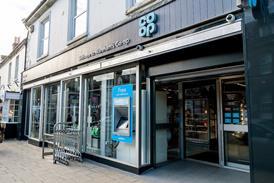



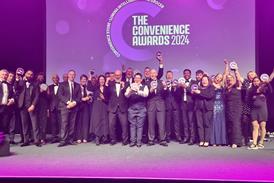





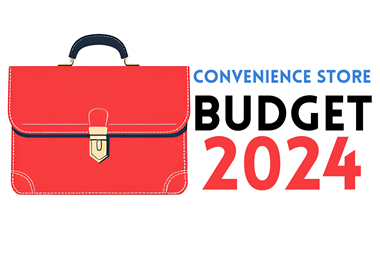







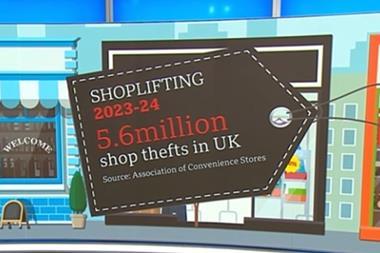

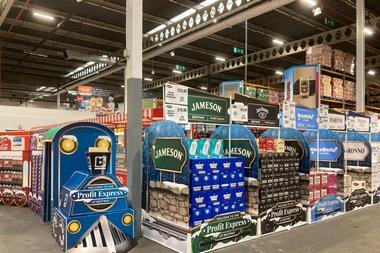
No comments yet